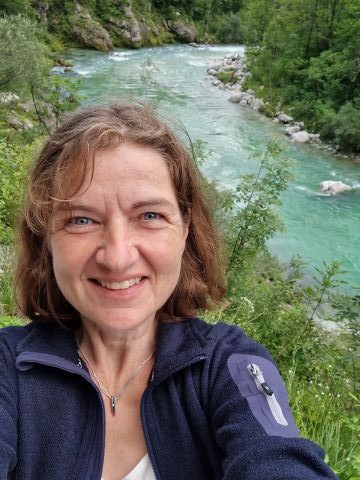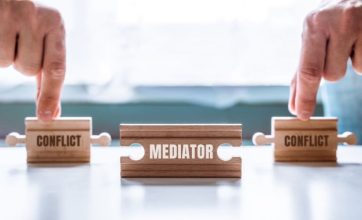By Hassan Humeida
Kiel, Germany
As Germany commemorates 35 years of unity since the historic fall of the Berlin Wall, AsiaN is publishing a special series of interviews with Germans who reflect on the country’s path to reunification. These accounts capture the experiences of individuals who witnessed the effects of breaking down barriers and opening doors to a shared future.
The reflections, marked by fairness and authenticity, highlight themes of dignity, resilience and hope. They move beyond surface narratives to offer deeper perspectives on the significance of reunification for Germany and for the world.
In keeping with its mission to present journalism grounded in shared humanity, AsiaN is committed to sharing these stories with readers across Asia and well beyond it.
Through these voices and their enduring messages, AsiaN seeks to remind the world that reconciliation, unity, and the bridging of divides are achievable ideals in today’s world.

Living Through Change: Reflections on German Reunification
and What It Could Mean for Korea’s Future
Interview with Cornelia Fischer; 55 Years Old; Teacher; Dresden, (East) Germany
My own experiences as a young person before German reunification
I grew up in Leipzig. Even as a child, the Leipzig Trade Fair influenced me. Trade fair visitors often left chocolate, perfume samples, or even some western currency for the
Intershop. A glittering and fragrant world of its own. Later, I visited the trade fair’s exhibits myself and was amazed at what was possible.
The fact that our houses were rather gray and that it rained even on the lower floors was normal for me for a long time, as I hadn’t known anything different. And I could well understand that people were happy when they got a new apartment.
During puberty, I began to argue heatedly. In everyday life and on West German television, we all saw a different reality than the one portrayed in the GDR media.
My Feelings during the German Reunification Process
In 1989, I was in my second year of university. The following years were characterized by a spirit of optimism and excitement for something new. The personal transition into a new phase of life overlapped with social changes.
For the most part, I enjoyed this time; there were changes every day. There was new crockery in the cafeteria, the study requirements and organization were adapted to the West German system, just as new regulations applied to everyday life from one day to the next.
One short period of time remains particularly vivid in my memory. It felt like the GDR laws no longer applied, and the FRG laws didn’t yet. Suddenly, many things in the offices were completely unbureaucratic. Hierarchies were flattened or completely abolished. People discussed things on an equal footing and made decisions based on “common sense.”
That was something completely unknown until then. A great time. This was probably true democracy.
During the GDR era, students at the EOS (secondary school), as well as students and apprentices, received their own money regardless of their parents’ income and circumstances.
This was not much by today’s standards, but it was enough to cover basic needs, especially during studies. It was a wonderful feeling to be financially independent of one’s parents.
After reunification, the West German BAföG (student financial aid) came into effect, and this caused discord in the family. For all of us, it was a step backwards that the parents now had to provide for their children financially again.
How my life and society have changed in the last three decades
In the early 1990s, German reunification in particular shaped the upheavals in society. From an East German perspective, these included, on the one hand, high unemployment, uncertainty regarding professional and thus personal prospects, the perceived devaluation of life’s work, and the takeover of East German companies by West German companies, and often their subsequent liquidation.
On the other hand, people could indulge their wanderlust and travel all over the world. The Deutsche Mark was a welcome currency. Starting one’s own company was also possible. Over time, this development was increasingly overshadowed by digitalization and globalization, coupled with a previously unprecedented wave of migration.
What I love about Germany as my home
My family, friends, and acquaintances live in Germany. Germany has diverse landscapes from the Baltic and North Seas to the high mountains of the Alps. Socially, personal freedom, social security, a high standard of living and a (still) functioning democracy are worth mentioning. I certainly see this this way because I have a job that fulfills me and provides me with a secure income.
My own perspectives on the lessons of German reunification for a Korean reunification
There were no guidelines for German reunification, so looking back, many things are seen from a different perspective. It seems essential to me that the economic strength of one country does not determine the policies of the united country.
The sell-out of the weaker partner by economically strong companies and individuals in the wealthier partner country must be prevented at all costs.
What is important is a common new legislation that recognizes the life achievements of all people. Furthermore, the costs should be presented transparently.
In short: “The privatization of profits and the socialization of costs should be avoided or reduced.”
Advantages I see for Korea and its future about a possible reunification of the Korean Peninsula
I lack detailed information on this question, so I would only like to answer in general terms. For Koreans, this would then offer the private possibility of family reunification.
The reunification of the two states could offer military stability and reliability, as well as economic growth and an improvement in the living conditions of North Korea. From a European perspective, I could also imagine the creation of a gentle but free tourism industry.
The path to tolerant and respectful coexistence of people worldwide
If anyone knew, they would be worthy of the Nobel Peace Prize. For me, this definitely includes replacing the pursuit of ever more, ever better goods with the use of long-lasting products.
The mindset of profit maximization must be replaced by the conservation of resources. Added to this are fair pay worldwide, respect for human rights, gender equality, and good, freely accessible education.
Furthermore, corruption, nepotism, and arbitrary treatment must be effectively combated. Performance (including social performance) should count.
Peace and security in the world mean the following to me:
Every person has the opportunity to remain in their homeland because they are safe and free from repression there, can earn a living for themselves and their children, there are sufficient resources for life, and education, healthcare, and culture are accessible.




